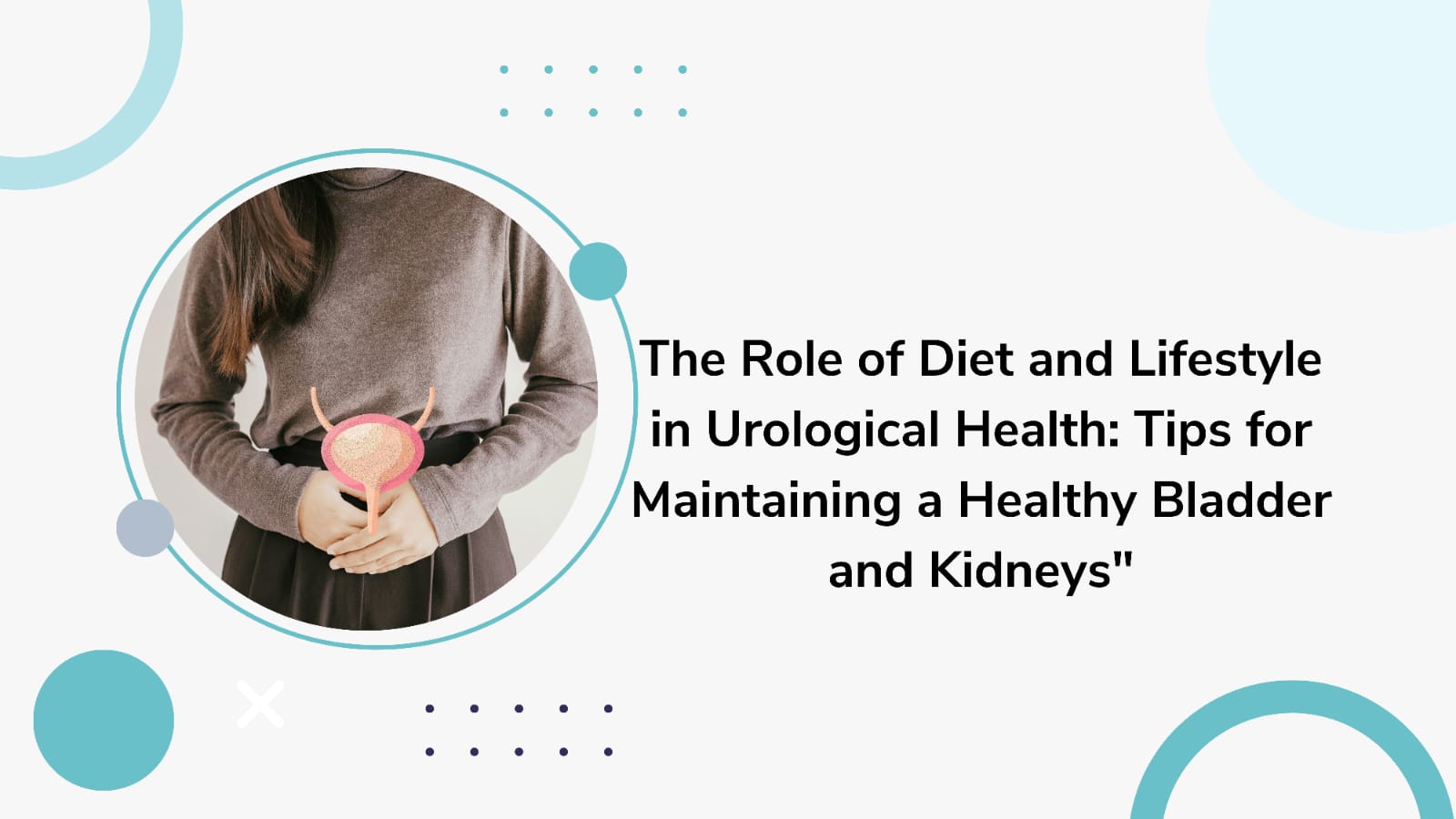Maintaining optimal urological health is essential for overall well-being. The health of our bladder and kidneys significantly impacts our daily lives, from urinary function to metabolic balance. While medical interventions play a vital role in managing urological conditions, adopting a healthy diet and lifestyle can complement treatment efforts and promote long-term urological health. In this blog, we explore the importance of diet and lifestyle in maintaining a healthy bladder and kidneys, along with practical tips for incorporating these habits into your daily routine.
Understanding the Importance of Urological Health
The bladder and kidneys play integral roles in the body’s urinary system, responsible for filtering waste products, regulating fluid balance, and eliminating toxins from the body. When these organs function optimally, they help maintain proper hydration, electrolyte balance, and overall metabolic health.
The Impact of Diet on Urological Health
- Hydration: Adequate hydration is essential for maintaining urinary tract health. Drinking plenty of water throughout the day helps flush out toxins and prevent urinary tract infections (UTIs) and kidney stones.
- Balanced Diet: A diet rich in fruits, vegetables, lean proteins, and whole grains provides essential nutrients and antioxidants that support urological health. Foods high in fiber help regulate bowel function and prevent constipation, which can contribute to urinary issues.
- Limiting Sodium and Processed Foods: Excessive sodium intake can increase blood pressure and strain the kidneys. Limiting processed foods, which are often high in sodium, can help protect kidney function and reduce the risk of kidney disease.
- Moderating Oxalate-rich Foods: For individuals prone to kidney stones, moderating the consumption of foods high in oxalates, such as spinach, nuts, and chocolate, may help prevent stone formation.
Lifestyle Factors Affecting Urological Health
- Maintaining a Healthy Weight: Obesity and excess body weight can increase the risk of urinary incontinence, kidney stones, and other urological conditions. Adopting a balanced diet and engaging in regular physical activity can help achieve and maintain a healthy weight.
- Regular Exercise: Physical activity promotes circulation, supports cardiovascular health, and may reduce the risk of developing urinary tract infections. Aim for at least 30 minutes of moderate exercise most days of the week.
- Smoking Cessation: Smoking is linked to an increased risk of bladder cancer and other urological conditions. Quitting smoking can improve bladder and kidney function and reduce the risk of developing urological cancers.
- Stress Management: Chronic stress can contribute to bladder and urinary dysfunction. Practice stress-reduction techniques such as mindfulness meditation, deep breathing exercises, and yoga to promote relaxation and overall well-being.
Practical Tips for Urological Health
- Stay Hydrated: Aim to drink at least 8-10 cups of water per day, and adjust your fluid intake based on your activity level and climate.
- Eat a Balanced Diet: Incorporate a variety of fruits, vegetables, whole grains, and lean proteins into your meals. Limit processed foods, sugary beverages, and excessive caffeine.
- Practice Good Hygiene: Maintain proper genital hygiene, and promptly address any urinary symptoms or concerns.
- Get Regular Check-ups: Schedule regular visits with your healthcare provider to monitor your urological health and address any emerging issues promptly.


